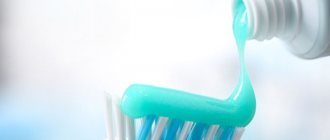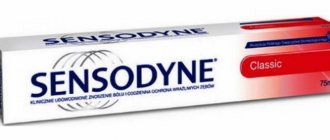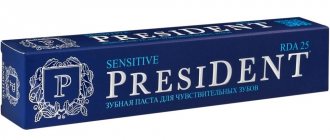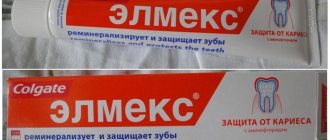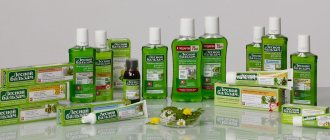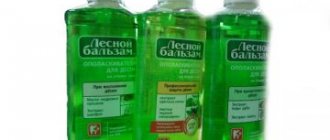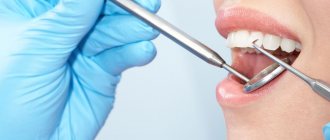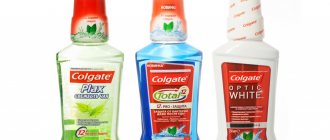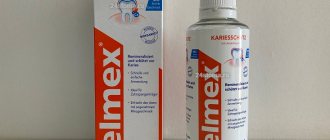Author of the article:
Soldatova Lyudmila Nikolaevna
Candidate of Medical Sciences, Professor of the Department of Clinical Dentistry of the St. Petersburg Medical and Social Institute, Chief Physician of the Alfa-Dent Dental Clinic, St. Petersburg
Oral care is an integral part of hygiene. Many people believe that brushing their teeth is enough to keep them healthy. But improper oral hygiene is the most common cause of diseases of the teeth and gums.
Periodontal diseases constitute the largest group of dental pathologies. To prevent the development of diseases such as gingivitis, periodontitis, stomatitis, a set of products is used to cleanse the oral cavity of bacteria living in dental plaque.
Special rinses for teeth and gums have a good therapeutic and preventive effect.
Why use mouth rinses?
Some people mistakenly believe that mouth rinse replaces brushing their teeth if they do not have the opportunity or time to use the standard method of cleaning their mouth twice a day. Meanwhile, balms-rinses belong to the group of additional products for proper oral hygiene and are intended for use together with toothpaste, dental floss and other hygiene items.
The gold standard for oral care: use a brush, toothpaste, dental floss and, finally, a mouthwash.
Mouthwashes are recommended for regular use after morning and evening brushing of teeth, as well as between them, after meals.
Why use mouth rinses? In the process of brushing our teeth, we focus on the dentition, but do not pay attention to the tongue and mucous membranes of the gums, the inner surface of the cheeks, and the palate. Whereas most bacteria accumulate not on the teeth, but on the mucous membranes of the oral cavity - up to 80% of bacteria that provoke the formation of tartar, caries and inflammatory gum diseases.
A rinse, unlike a brush and floss, allows you to clean the entire oral cavity, including the mucous membranes, interdental spaces and periodontal sulcus. This is especially important for people who wear braces or dentures. When we rinse our mouths with tap water, the entire effect of the toothpaste disappears; we literally spit out the protection that we provided ourselves with the gum paste. Thus, the rinse is the final step in daily oral hygiene, it helps restore the protection that the tap water has washed away.
Depending on the active component, rinses can be aimed at strengthening gums, protecting against caries, or whitening enamel, but they all have a similar effect and help:
- destroy bacteria;
- preserve enamel;
- remove plaque accumulated during the day;
- eliminate bad breath.
These are rinses for daily use. There are also special medicinal rinses. Regular use of the mouthwash in combination with normal oral care has a noticeable positive effect.
President Classic Plus
"President" is an excellent product for caring for gums and oral mucosa. “Classic Plus” properties do not upset buyers. The first is fresh breath. The good smell lasts for a long time. Many people like the pleasant, unobtrusive taste and aroma.
This packaging lasts for a long time, the consumption is small. When using, you will not experience any irritation, pain, or allergies. There are no restrictions for people with sensitive enamel.
Consistency color: bright green liquid; the smell and taste are very pleasant and refreshing. Bottle volume 250 ml.
Choosing the best mouthwash for teeth and gums
Modern rinses are available in the form of ready-made solutions, liquid concentrates, or in the form of powders that must be diluted with water. They can be hygienic for refreshing the oral cavity and therapeutic and prophylactic against caries, inflammation, bleeding gums and for strengthening tooth enamel.
For daily use, you should choose a liquid without an antibacterial component in the composition. A gum rinse with an antibacterial component (triclosan, chlorhexidine) helps with acute inflammation (ulcers, gum inflammation, aphthae). But it is worth considering that it cannot be used for more than 7 days in a row, because the native microflora of the oral cavity begins to die, it is replaced by pathogenic bacteria that produce resistance factors to triclosan and chlorhexidine, and become the enemy of your body. Dry mucous membranes and increased tissue irritability may appear.
You also need to pay attention to the fluoride content: with a content of no more than 0.05%, the liquid can be used daily without harm. If the fluoride concentration is 0.2% or higher, dentists advise using this rinse no more than 1-2 times a week.
The product for sensitive teeth that react to cold and hot should not contain alcohol. Ethyl alcohol can negatively affect the condition of the oral mucosa. Motorists should also note that such a mouthwash can give a positive result on a breathalyzer, although the normal level of ethyl alcohol in the breath returns within 10 minutes after rinsing the mouth.
It is worth saying that the color of the liquid does not affect the change in the color of tooth enamel, that is, staining does not occur even after prolonged use of the mouthwash. Therefore, when choosing a rinse aid, you do not need to focus on the color of the solution.
When choosing an oral fluid, pay attention to criteria such as:
- clinically proven effectiveness;
- products are approved by the Russian Dental Association.
For example, Asepta® brand mouth rinses meet these criteria. The line of products includes two combined-action rinses - the hygienic Asepta® Fresh and the therapeutic and preventive Asepta® Active.
Mouthwash "Asepta® Active" is intended for use in infectious and inflammatory diseases of the oral cavity. It has an antibacterial effect, relieves inflammation and bleeding of gums due to gingivitis and periodontitis, prevents the formation of dental plaque and freshens breath. The liquid also has an analgesic effect, since it contains an analgesic - benzydamine, therefore it is indicated for toothache.
Asepta® Fresh mouthwash does not contain alcohol or antiseptics and is recommended for daily preventive protection and maintaining healthy gums and teeth. The product reduces the increased sensitivity of teeth and gums, prevents the formation of tartar and caries.
Mouthwash for bleeding gums
When bleeding gums, rinses with plant extracts help well. Extracts of plants such as chamomile, sage, lemon balm, St. John's wort, oak bark have a pronounced healing effect, help cope with bleeding and strengthen gums, and have a wound healing effect. Chamomile improves blood circulation and has a positive effect on blood vessels, preventing bleeding.
Plant extracts also help achieve fresh breath.
Mouthwash for gum inflammation
Anti-inflammatory rinses contain components such as plant essential oils, antiseptics, and antioxidants. Chlorhexidine is a broad-spectrum antiseptic, most often used in anti-inflammatory rinses. As mentioned above, the course of use of such rinses is limited and must be agreed with a doctor so as not to upset the balance of the oral microflora.
The rinse may also contain betamethasone as an anti-inflammatory component.
Mouthwash against caries
Anti-caries agents contain minerals (fluorine, calcium), which are aimed at strengthening tooth enamel and preventing caries. Fluoride rinses are suitable for daily use as long as the fluoride concentration is low. The British Dental Association recommends the use of fluoridated rinses as an addition to brushing with fluoridated toothpastes, which provide a higher level of protection than using toothpaste alone.
How to use mouthwash for oral hygiene?
Rinsing with mouthwash should be done at least twice a day, after brushing and flossing your teeth. It is recommended to use the rinse also after meals during the day as an independent means of oral hygiene.
Many mouthwash bottles have a special dispenser cap that holds approximately 4 teaspoons of product, which is equal to 20 g of liquid. If there is no measuring cap, a dose equivalent to 20 g of liquid is used.
To achieve the effect, you need to rinse your mouth with the liquid for at least 20 seconds. Dentists recommend rinsing your mouth dynamically, as if filtering the liquid through your teeth. The liquid is then spat out. After the procedure, it is advisable to refrain from eating and drinking for half an hour to allow the healing, antiseptic and mineralizing components to take effect.
Rinse aids are not intended to be diluted with water or mixed with other products.
If you experience a burning sensation in your mucous membranes when using a mouthwash, you should choose another oral hygiene product.
Let's summarize: using mouthwash for daily oral hygiene is not only possible, but also necessary. For daily use, a product without an antibacterial component and with a low fluoride content is suitable. By regularly using mouth rinse as the final stage of hygiene, you will ensure reliable protection of your teeth from plaque and caries, and gums from inflammatory diseases, and avoid bad breath.
May your teeth be healthy!
ROCS Raspberry – mouthwash with berry flavor
The “ROCS” product has an anti-inflammatory effect, prevents gums from bleeding, and washes away all plaque. The xylitol contained in the composition prevents the accumulation of caries. Despite the raspberry flavor, the rinse is transparent and does not irritate the skin in the corners of the lips or the oral cavity itself.
But the rinse aid does not provide freshness for the whole day. When applied, a strong raspberry flavor is felt.
User reviews after using ROCS Raspberry:
- “Good composition, refreshes, preserves dental health”;
- “Reduces inflammation and performs as promised.”
Clinical researches
The effectiveness of Asept products has been clinically proven. For example, multiple clinical studies have proven that the two-component mouth rinse ASEPTA ACTIVE more effectively fights the causes of inflammation and bleeding compared to single-component rinses - it reduces inflammation by 41% and reduces bleeding gums by 43%.
Sources:
- The role of anti-inflammatory rinse in the treatment of periodontal diseases (L.Yu. Orekhova, A.A. Leontyev, S.B. Ulitovsky) L.Yu. OREKHOVA, Doctor of Medical Sciences, Prof., Head of Department; A.A. LEONTIEV, dentist; S.B. ULITOVSKY, Doctor of Medical Sciences, Prof. Department of Therapeutic Dentistry of St. Petersburg State Medical University named after. acad. I. P. Pavlova
- Report on clinical trials to determine/confirm the preventive properties of commercially produced personal oral hygiene products: mouth rinse "ASEPTA PARODONTAL" - Solution for irrigator." Doctor of Medical Sciences Professor, Honored Doctor of the Russian Federation, Head. Department of Preventive Dentistry S.B. Ulitovsky, doctor-researcher A.A. Leontiev First St. Petersburg State Medical University named after academician I.P. Pavlova, Department of Preventive Dentistry.
- Report on determining/confirming the preventive properties of commercially produced personal oral hygiene products: Asepta toothpaste used in combination with Asepta mouthwash and Asepta gum balm Head. Department of PFS Doctor of Medical Sciences Professor S.B. Ulitovsky St. Petersburg State Medical University named after Academician I.P. Pavlova. Faculty of Dentistry. Department of Preventive Dentistry.
Glister from Amway
Mouthwash "Glister" copes well with itching, has an antibacterial effect, and does not leave plaque on the teeth. It has a pleasant taste, aroma, and provides freshness for a long period.
“Glister” perfectly washes away all food residues that a toothbrush and toothpaste could not clean. “Glister” received the “Seal of Approval”, giving positive reviews from Russian dentists. This means that the doctors themselves confirm the guarantees for the promised cleaning functions.
Reviews after using "Glister":
- “After I started using this product, I forgot the last time I was at the dentist”;
- “An effective remedy, an excellent medicinal composition”;
- “Helps with toothache and even sore throat.”
Many buyers express dissatisfaction with the ratio of price and volume of the bottle. 50 ml cost approximately 600 rubles.
Forest balm
The “Forest Balsam” mouthwash is very famous throughout Russia and beyond its borders.
This product contains silicon dioxide, which is responsible for the abrasiveness of tooth enamel, and the particles inside the composition gently cleanse the teeth. The balm also has a whitening effect and copes well with plaque and the first signs of caries. But the effect occurs only after brushing your teeth.
Fluoride and calcium have an anti-caries property that prevents harmful substances and food products from rotting and causing problems in the oral cavity. Thanks to the composition with silicon dioxide and a cleaning power enhancer, the product can be used constantly.

